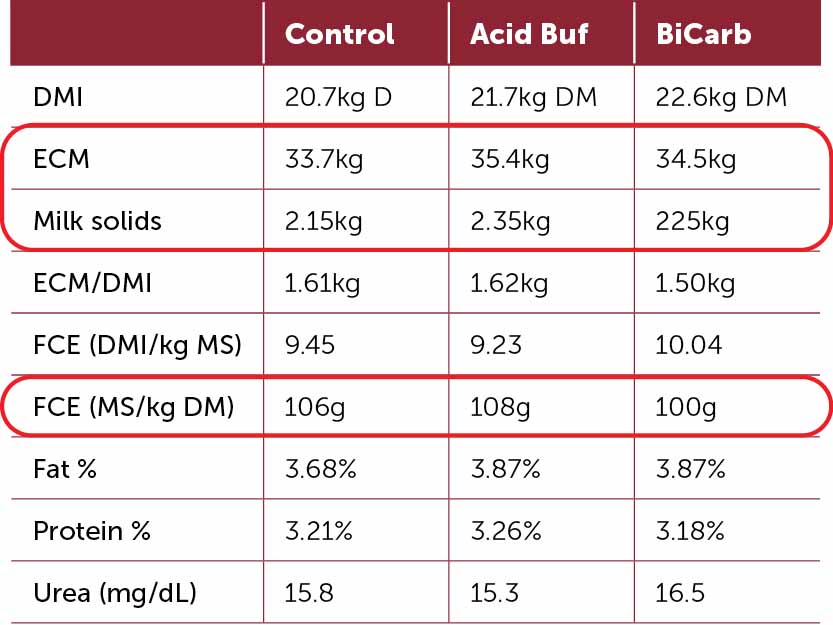Understanding and managing Sub Acute Ruminal Acidosis (SARA) in dairy cows
When it comes to managing dairy cows, balancing rations to prevent Sub Acute Ruminal Acidosis (SARA) is often a well-known but sometimes underestimated task. While everyone recognises its necessity, it’s easy to take it for granted. However, recent research in the Journal of Dairy Science has shed new light on the various effects of SARA on the gut health of dairy cows, depending on the source of the challenge.
What is SARA?
SARA occurs when fermentation acids accumulate faster in the rumen than they are removed, usually due to an imbalance in their diet. Cows consuming high-starch rations or grazing on highly digestible, high-sugar pastures are particularly at risk. While increasing starch in the diet helps boost blood glucose levels needed for milk production, it’s crucial to maintain rumen pH within a stable range.
Consequences of SARA
If the cow’s diet doesn’t have enough physically effective fibre and buffering agents to balance out the fermentable carbohydrates, it can cause inflammation of the rumen wall and throughout the body due to endotoxins getting into the bloodstream. These issues can activate immune cells that use up significant amounts of blood glucose, causing a notable drop in milk production.
Cows grazing pastures high in sugars, soluble protein and Potassium may also experience rumen pH reductions and SARA, although without visible markers of inflammation. Changes in the balance of bacteria and other microorganisms in the cow’s rumen can cause a decrease in the amount of milk the cow produces. Farmers may notice looser stools and decreased milk fat levels.
Managing SARA
To prevent SARA, you need to balance the diet with enough fibre (peNDF or physically effective neutral detergent fibre) and non-fibre carbohydrates (NFC), aiming for at least a 1:1 ratio. Soluble protein and high potassium levels can raise the concentration of substances in rumen fluid, slowing the removal of acids and increasing the risk of SARA.
Using an effective and proven rumen buffer can help keep the rumen pH stable and support better milk production.
Studies on Acid Buf (a natural marine based buffer) show that it consistently benefits cows when it’s included at 0.4% of their total daily dry matter intake (DMI). For example, cows that eat 20 kg of DMI per day see the best milk production results when they get 80 g of Acid Buf per day. It’s important to buffer not only for the grain in the diet but also for the effects of the whole diet, including the forages.
Here’s a table showcasing the benefits of Acid Buf in milk production based on research by Neville et al. (2019):
The research indicates that the optimal level of Acid Buf inclusion is 0.4% of daily DMI, which yields an average energy corrected milk production response of 4.1%. This level strikes a balance between effectiveness and cost efficiency.
Further tips for managing SARA
Managing SARA effectively involves several key practices:
- Monitor rumen pH and faecal changes: Boluses are now available to test rumen pH levels to catch any issues early,aim for a pH range of 5.8-6.5. Always watch for changes in faecal consistency, add sources of peNDF when loose stools occurs.
- Feed management: Ensure feed is provided in a balanced and consistent manner. Gradual feed changes and a consistent feeding schedule can help maintain stable rumen conditions.
- High-quality forage: Provide a range of high-quality forages to support healthy rumen function and prevent SARA.
- Water availability: Make sure cows have constant access to clean, fresh drinking water, which is essential for proper digestion and rumen health.
To summarise, proactive management and continuous monitoring are essential for preventing SARA and maintaining a healthy, productive herd. By paying close attention to diet and incorporating effective rumen buffers like Acid Buf, farmers can safeguard their cows’ health and optimise milk production.
For tailored guidance on enhancing your herd’s nutrition and management practices, turn to the specialists at Reid Stockfeeds. We’re dedicated to empowering you with expert advice to support the health and performance of your cows. Contact us today to discover our extensive selection of high-quality feed options and explore customised solutions designed to meet your farm’s unique needs.. Call 1300 REID FEED or enquire here >
 Author
Author
Pip Gale
Technical Services (Ruminant) at Feedworks


 Author
Author